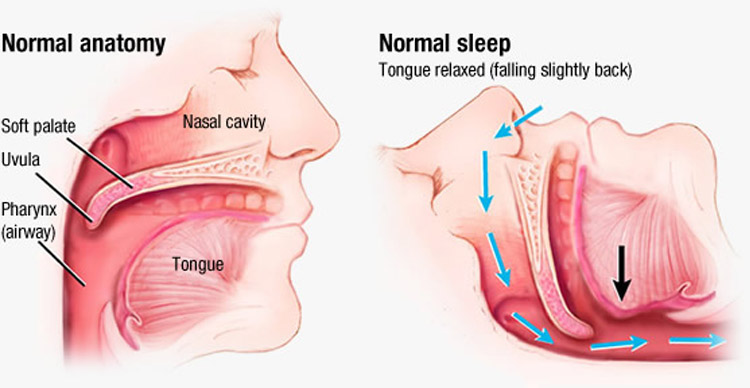
Snoring isn't something that most of us worry about. But loud snoring—especially when it's accompanied by daytime fatigue—may be a sign of sleep apnea, a common and potentially serious disorder in which breathing repeatedly stops and starts as you sleep. Untreated sleep apnea can be dangerous and detrimental to your health, so it’s important to see a doctor if you suspect that you or a loved one might have it. Read on to learn the warning signs of sleep apnea, how to distinguish it from normal snoring, the medical treatments available, and what you can do to help yourself.
Sleep apnea affects the way you breathe when you’re sleeping. In untreated sleep apnea, breathing is briefly interrupted or becomes very shallow during sleep. These breathing pauses typically last between 10 to 20 seconds and can occur up to hundreds of times a night, jolting you out of your natural sleep rhythm. As a consequence, you spend more time in light sleep and less time in the deep, restorative sleep you need to be energetic, mentally sharp, and productive the next day.
The chronic sleep deprivation that comes with sleep apnea results in daytime sleepiness, slow reflexes, poor concentration, and an increased risk of accidents. Sleep apnea can also lead to serious health problems over time, including diabetes, high blood pressure, heart disease, stroke, and weight gain. But with treatment you can control the symptoms, get your sleep back on track, and start enjoying being refreshed and alert every day.
